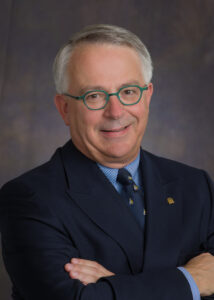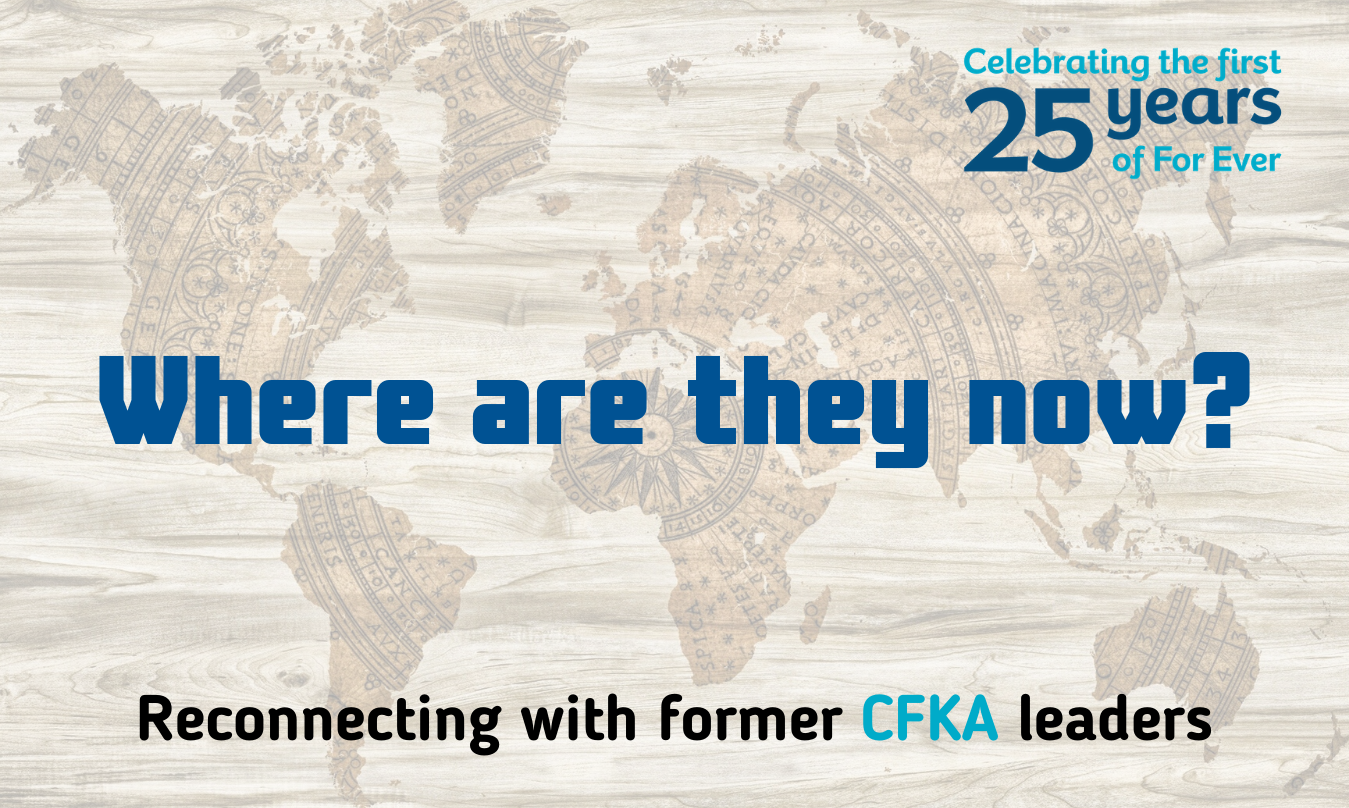Where are they now?

During a time of transition between full-time Executive Directors, two board members stepped in to fill this role from January to September 2003. Ian Fraser served as Interim Director from January-May, and Henry Meyer served from June-September. In this “look back” we check in with Ian Fraser. Sadly, Henry passed away in February 2014. However, his legacy, along with that of his wife (now also deceased) lives on through the Marion Meyer Opportunity Fund held at the Foundation which supports education and training initiatives through our Community Grants Program.
—
Ian M. Fraser
Memory is a way of holding on to the things we value most, the things we are, the thoughts we never want to lose.
As a long serving resource development officer in Kingston (KGH Vice-President, Development; Director of Development, Queen’s University), I am (and was) known locally for my passion for philanthropy and experience in fund-raising.
Michael L. Davies, an engaged mentor and friend (early in my fund-raising career and continuing to this day), assumed the role as the Foundation’s first President in March 1995. Michael encouraged me to get more involved with the Foundation and in 1996, I joined the Board of Directors. Many enduring friendships with colleagues around those early Board tables started then.
 Over an eight-year period (1996-2004), I served on the Community Foundation Board of Directors and as a volunteer on several operating committees, including the Professional Advisors Committee. I served as the interim Executive Director of the Foundation from January to May 2003.
Over an eight-year period (1996-2004), I served on the Community Foundation Board of Directors and as a volunteer on several operating committees, including the Professional Advisors Committee. I served as the interim Executive Director of the Foundation from January to May 2003.
So much was accomplished by the Foundation as it approached the 21st century and a broader awareness for the value of a community foundation evolved in Kingston. At the time, community foundations in Canada were generally reluctant to engage in active, annual fund-raising, preferring the role as builders of long-term endowment, effectively a community ‘savings’ account. As a result, there was a need to strengthen the organization’s embryonic fund-raising programs and gift solicitation strategies. Increasingly, it was understood that for the Foundation’s Operating Endowment Fund to grow sufficiently to provide the annual revenue needed to sustain operations, more annual fund-raising would be required. To address this need, I proposed the creation of what became known as The Giving Circle, a strategy designed to secure regular gifts of at least $1,000 from 100 individual donors annually. Early contributors were asked to pledge their support for an initial period up to five years. Many original Giving Circle contributors continue to support the Foundation with annual gift support to this day, helping ease the pressure of reliance on investment earnings alone to fund operations. Events like COVID-19 serve to underscore the enduring wisdom of this approach.
I was proud to lead a consultation effort commissioned by Community Foundations of Canada (CFC) to create what became known as the Professional Advisors eResource. Available through foundation websites across the country, the resource was initially tested on the CFKA website. We were early pioneers in promoting the importance of strong relationships between investment advisors, their clients and the foundation. With guidance from Walter Fenlon, a successful local investment advisor, we understood there was a real need to educate on the benefits of gifting assets to charity and to help advisors better understand the tax-wise giving and estate planning strategies that would help their clients become more philanthropic, in partnership with CFKA.
Today, as the Foundation celebrates 25 years of successful operation in the community, the remarkable growth of assets under management in foundation accounts is a testament to the success of this essential understanding.
When I accepted the role of interim ED in 2003, the Board understood that, due to the Foundation’s growing size and importance, it was important to attract and retain a full-time, Executive Director. In my interim role, I was asked to coordinate the work of identifying and recruiting for this position.
A team of experienced Board members was assembled, and the process initiated. Concurrently, the need to sustain operations with limited staffing and financial resources continued. It was a challenging time for volunteers and staff alike. Glenn Stresman, a Lutheran minister and fund-raising veteran from Southwestern Ontario, was named the new Executive Director in September 2003.
As the hiring process took longer than originally envisioned, I had to conclude my contractual obligation as interim ED due to other commitments. Board Member Henry Meyer, a remarkable gentleman and experienced administrator, ‘stepped up’ to assume the ED responsibilities – on an ‘interim-interim’ basis, until Glenn could get established in Kingston.
I continue to serve the charitable sector as a consultant in philanthropy. In addition to working with Canadian charities to establish and/or strengthen legacy gift planning programs, I work to promote and advance the practice of philanthropy across Canada through Gift Funds Canada.
I NEED FUNDING
275 Ontario Street Suite #100
Kingston, ON K7K 2X5
Phone: 613.546.9696
Fax: 613.531.9238
Email: info@cfka.org

275 Ontario Street Suite #100
Kingston, ON K7K 2X5
Phone: 613.546.9696
Fax: 613.531.9238
Email: info@cfka.org


